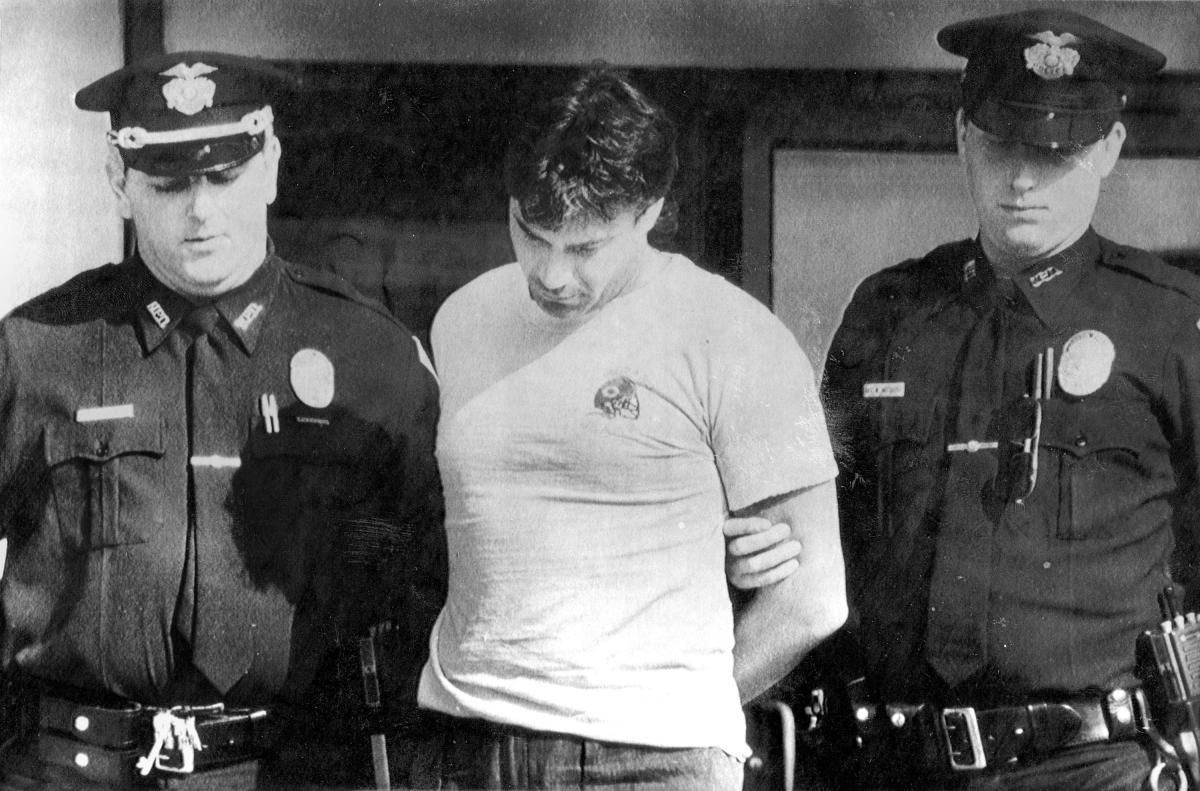CONCORD, NH (AP) – Two years after accusing her former therapist of sexual abuse, she put his address into an online directory and came across an unknown alias. A search by that name turned up newspaper articles about the death of a 10-year-old girl.
“What’s that got to do with Peter?” she wondered.
A few obituaries she found afterward pointed closer to a connection. Sitting at a computer in the public library in January 2020, she scrolled through several small, blurry photos on a newspaper archive site until a larger one popped up.
“Bingo,” she thought. “That is him.”
Her next thought?
“You bastard.”
New Hampshire is one of the 10 states where people can change their name while incarcerated, but the public can’t know someone’s past identity unless they go to the courthouse where the change was approved, or do serious scavenger hunts. It was the latter that led to the discovery that Peter Stone was once Peter Dushame, a drunk driver who was convicted of manslaughter more than 30 years ago.
What happened in between raises complicated questions about the right to start a new life after detention and what patients can or should know about a mental health provider’s past.
“To what extent do we want to taunt someone for the rest of their life?” said Albert “Buzz” Scherr, a professor at the University of New Hampshire’s Franklin Pierce School of Law. “Should every therapist be forced to reveal to every incoming patient that they have been convicted of a crime?”
Stone, then known as Peter Dushame, was 33 years old and drunk when he plowed into a parked motorcycle in Nashua, New Hampshire, on Oct. 1, 1989. Lacey Packer, a fourth-grader on her way home to Massachusetts with her father, died two days later.
He held a valid driver’s license despite five previous drink-driving convictions, and it was his third fatal accident – although the other did not involve alcohol. Both Massachusetts and New Hampshire responded with new laws, and The Boston Globe called him “the most infamous drunk driver in New England history.”
But over time, he devoted himself to helping people recovering from addiction, earning a master’s degree in counseling psychology, and leading treatment programs from behind bars.
Two years later, he legally changed his name to Peter Stone. He was released from prison in 2002 and eventually settled as a licensed drug and alcohol counselor in North Conway.
“I stand as proof that people can change,” Stone wrote to state regulators in 2013.
Last July, he was charged with five counts of aggravated crime under a law that criminalizes any sexual contact between patients and their therapists or caregivers. Such conduct is also prohibited by the American Psychological Association’s Code of Ethics.
In a recent interview with The Associated Press, the 61-year-old woman said she developed romantic feelings for Stone about six months after he began treating her for anxiety, depression and alcohol abuse in June 2013. unethical, he eventually began sexual contact in February 2016, she said.
“That went over the line,” the woman recalls saying after pulling up his pants. “‘When do I see you again?'”
While about half of the states have no restrictions on name changes after felony convictions, 15 have bans or temporary waiting periods for those convicted of certain crimes, according to the Illinois ACLU, which has one of the most restrictive laws.
Stone appropriately disclosed his criminal record over license applications and other documents, according to a review of the data obtained by the AP. Disclosure to clients is not required, said Gary Goodnough, who teaches counseling ethics at Plymouth State University. But he believes clients have a right to know about some convictions, including vehicular murder.
“One of the principles underlying the consultant profession is the notion of truthfulness,” he said. “We have to tell the truth.”
According to court documents, Stone told investigators that the woman stroked him once, but he didn’t know how his DNA ended up on her shirt. The state suspended his counseling license in December 2017 and voluntarily surrendered it four months later.
Stone declined to be interviewed by the AP and his attorney did not respond to requests for comment. The prosecutor declined to comment on any aspect of the case. A hearing to determine whether Stone is fit to stand trial is scheduled for September.
Donna and Gordon Packer, who became advocates for tougher drink-driving laws after their daughter’s death, were notified by the state of Stone’s name change but only learned of his recent arrest when the AP contacted them.
Donna Packer said that after her husband offered forgiveness in a letter years ago, Stone responded by asking for help getting out of prison early. The couple thought that was manipulative, she said, but still, she’d hoped he’d changed.
“I hate that he still victimizes people,” she said. “It didn’t have to be like this.”

